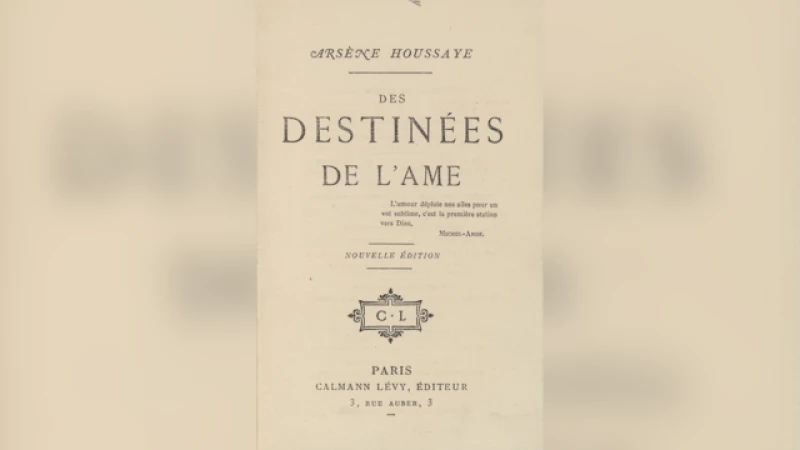Harvard Library has recently made the decision to remove a book from its collection that has been housed there for almost a century. This particular book is partially constructed using human skin that was taken from a deceased hospital patient without their consent. The book's presence in the library has raised ethical concerns over the years, given that it was bound with a woman's skin and accompanied by a handwritten note from its original owner stating, "a book about the human soul deserved to have a human covering."
The book in question, titled "Des Destinées de L'âme" ("Destinies of the Soul"), was published by Arsène Houssaye in 1879 and was not originally crafted from human skin. The skin binding was added by the book's first owner, French physician Dr. Ludovic Bouland, who, as per Harvard Library, obtained the skin without consent from a deceased female patient at the hospital where he practiced.
Dr. Bouland included a handwritten note within the book, justifying his actions by stating that "a book about the human soul deserved to have a human covering," shared Tom Hyry, associate university librarian for archives and special collections, in a recent update from Harvard Library.
Shocking Revelation: Book Bound with Human Skin
"Evidence suggests that Bouland, a former medical student, used skin from a deceased woman patient at a French psychiatric hospital to bind the book," revealed Hyry. The book, now at Harvard, was added to the collection in 1934, a year after Bouland's death.
Detailed documentation of the skin treatment process was provided in a lost memo by John Stetson, accompanying the book. Harvard Library confirmed the use of human remains in the binding through a test conducted in 2014.
For years, the book was accessible to all visitors, with no restrictions. However, recent actions by Harvard Library have led to the book's removal, acknowledging past mishandling and apologizing for the disrespect shown towards the deceased individual.
"The decision to remove the book is part of a broader initiative by the University to address the presence of human remains in its collections," stated Anne-Marie Eze, an associate librarian at Harvard's Houghton Library.
In 2022, the university released a report regarding human remains discovered in university collections. A committee identified remains of 15 individuals who "may have been enslaved" at the Peabody Museum, which houses "one of the largest collections of human remains of Native American individuals in the nation." The majority of human remains found in the university collections are associated with archaeological contexts or utilized for educational purposes.
However, the book was not classified under this category, and it is not the sole instance of human remains believed to be present in the library system.
The library has stated that they are currently conducting further investigations into the book, Bouland, and the female patient from whom the skin was extracted. The skin is securely stored at the Harvard Library, and collaboration is underway with France to establish an appropriate and respectful disposition for these human remains.
Eze mentioned that the book has been completely digitized, excluding the binding, and these scans are now accessible to the public. All images of the skin have been removed from the online catalog and blog posts, and in the future, the book will only be accessible to researchers without its cover.
"The root issue behind the production of the volume stemmed from a physician who failed to acknowledge the humanity of the individual before him. This led to the reprehensible act of extracting a portion of skin from a deceased patient, most likely without proper authorization, and incorporating it into a book cover that has been touched by numerous individuals for over a hundred years," stated Hyry. "It is our stance that the remains should now be laid to rest."







